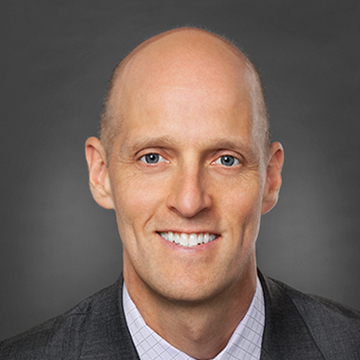
By Seth Streeter, MS, CFP®, CEA®, CDFA™
Founder and CEO
Let’s face it, we all would like to build more wealth. What are the best ways to do this? Aside from winning the lottery, receiving an inheritance from a long lost relative or investing in the next hot start-up, most people need to do it the old fashioned way—by living within their means and socking money away into savings.
Beyond these important steps, there is more that can be done. In order to amass substantial wealth, one needs competitive growth rates on their savings and as much consistency as possible (i.e., avoiding big losses). To achieve this objective, broad diversification is required. Furthermore, the investments should be rebalanced over time to keep the allocation in check and the risk profile aligned with the investor’s needs. Tax efficiency and investment expenses should also be considered to ensure as much of the return goes toward the goals of the investor versus to Uncle Sam or an investment company.
There is even more that can be done if someone is really serious about maximizing wealth. It has to do with planning for the four assets that are often ignored and underutilized.
- Your Home - The family home is often the largest asset on the balance sheet, yet it is often disregarded when it comes to wealth planning. While Social Security, pensions, retirement funds, stocks, bonds, CDs and rental real estate are often taken into consideration for retirement calculations, utilizing the home as an asset can greatly impact retirement income as well. What once was simply a place to live is now a significant source of capital that can be deployed in various ways. From simply renting out a room to a home downsize to a reverse mortgage or a home equity line draw, the equity can be utilized in ways to allow the “wealth” in your home to generate more income in your retirement years.
- Intellectual Capital – Many people have worked for years to gain unique knowledge, contacts and goodwill in their chosen profession. Yet most people become accustomed to their particular role and title and rarely stop to assess whether they are limiting themselves from doing or earning more.
Are you due for a raise? Have you made yourself deserving of one? Are you tired of working for someone else, and feel you could do more if you were to start a business on your own? A worker’s ability to earn more money through improved utilization of their talents and expertise is often overlooked.
This could apply outside of your career as well. For example, you may have a great idea for a new invention or product that could be developed and sold to millions. Or, maybe you have a secret talent, something that is your personal “genius” that has been held back but is ripe for monetization. Beyond tangible assets, people must never forget that their intellectual capital is a most valuable asset that should be maximized. - Cash – Out of fear, or often lack of knowing, many people hold onto excessive cash. Beyond a reasonable “emergency reserve” of 3 to 12 months of living expenses, or for a pending purchase that is anticipated in the next three years, excess cash positions can be very costly. In today’s low interest rate environment, bank savings accounts, money markets or CDs are yielding close to nothing, and these funds are losing purchasing power every day. Investors who are looking to grow their wealth should become educated on alternative options for this cash so they can outpace inflation and enjoy the benefits of compounding interest.
- Company Retirement Plans – Most Americans put the bulk of their savings into their company retirement plans (i.e., 401(k)). Yet, most of these plans are underutilized and people rarely make changes to the investment holdings within them. Therefore, making sure the investment strategy in your company retirement funds is aligned with your goals, and that it is looked after proactively, may contribute to your returns and thus add to your wealth accumulation.
By paying attention and thinking strategically about a residence, career or entrepreneurial ideas, excess cash and retirement plans, people can optimize assets that may be under performing and add wealth and increased financial security to their bottom line.
1014745 2/18


